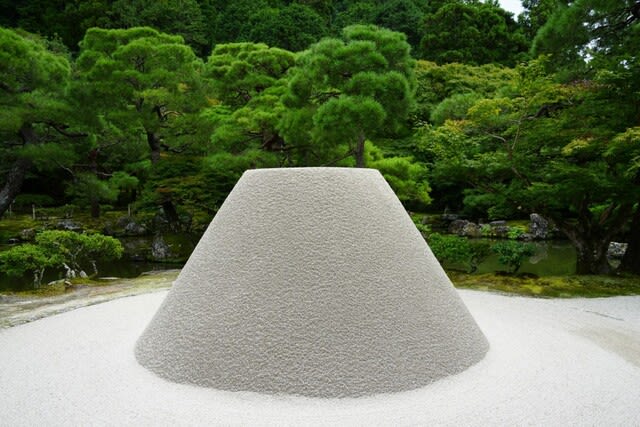German generals who surrendered at the Battle of Tsingtao were able to play the 9th Symphony at the Bando POW camp.
It is from a series of columns by Masayuki Takayama published in the Weekly Shincho on 2019-07-20.
It is a brilliant article showing that he is the one and only journalist in the post-war world.
The Tragedy of B
Shortly after Japan's defeat, Kim Chon-hae founded the Korean Residents League in Japan and declared, 'We will make Japan a better place for us Allied people to live.'
GHQ said, 'Koreans are third-country nationals,' but Kim Chon-hae insisted, 'We should at least have extraterritorial rights.'
The Kanagawa Taxation Office busted the Koreans in Japan's moonshine factory.
That night, the person responsible for the expose was attacked and killed.
The purpose was to show that Koreans in Japan had extraterritorial rights.
Kim Chon-hae issued complimentary tickets to the National Railroad to prove their extraterritoriality, allowing Koreans in Japan to ride without charge.
Koreans in Japan couldn't get on the train due to overcrowding and were forced to break the train window to get on, a Japanese man warned.
They got angry, dragged the man to the platform, and beat him to death with a shovel.
They had no self-control.
The federation also created an 'Academic Encouragement Society.'
If you registered there, you were free to enter Hosei, Chuo, and Meiji universities.
Among them, Hosei was especially popular.
It may be because of this old friendship.
The Asahi Shimbun reported on the front page the other day that a student of Hosei University has made a documentary about Lee, a 92-year-old South Korean who was sentenced to death for being a Class BC war criminal.
The absurdist Lee certain was recruited at the age of 17 for a job in the military.
His job was to guard the Hindok POW camp on the Thai-Burma Railway.
The first battle of the last war was a crushing victory for Japan.
Roosevelt had provoked Japan into the war, but he failed to see the power of Japan.
He believed the Japanese had no decent planes and their pilots were too short-sighted to dive.
Even the whites could not strike lightning at the shallow water of Pearl Harbor.
He was worried that even if he let the Japanese take them by surprise, they would not do the damage they desired.
Both battleships and cruisers were sunk, causing ten times more deaths than expected.
Hamilton Fish's 'Roosevelt's Responsibility for the Start of the War' shows the president's dismay at his remorse at having caused so many American civilian deaths through his deceit.
That's what happened at Pearl Harbor.
The British battleship Prince of Wales, which had come to strike Japan, was immediately sunk, and Singapore, Manila, and Bandung fell one by one in less than six months.
In the ground battle, the white generals raised their hands as soon as the Indian soldiers, their minions, were killed.
It took 260,000 men prisoner, more than the total number of Japanese troops in the south.
In Japanese prisons, there is a correctional officer for every five prisoners.
For every five prisoners in Japanese prisons, there would be one correctional officer for every five prisoners.
The Japanese could not fight a war in that situation, so the Korean guards came into play.
It was surprising even to the white officers who raised their hands.
The Japanese took great care of their POWs.
During the Russo-Japanese War, Russian soldiers shouted "Matsuyama" and surrendered.
The German generals who surrendered at the Battle of Tsingtao could play the Ninth Symphony at the Bando POW camp.
Korean guards replaced them.
The post-war conduct of the Koreans in Japan suggested that the response was terrible.
In H. Nelson's The Days of the Japanese POW Camp, he wrote: 'The Koreans were brutal. We called him Mephistopheles.'
Lee, certain sympathetic to Hosei University students, managed 500 prisoners of war with six of his friends.
Slapping was said to be a daily occurrence.
The nickname given to him was 'Lizard.'
Then the war ended.
Lee certain was accused of prisoner abuse.
He was released but arrested again in Hong Kong and sentenced to death as a Class C war criminal during the repatriation process.
However, he was never executed and was released 11 years after the war.
It rejected his claim that Japan should pay his pension because he was mobilized as a military servant.
In the end, 148 Korean guards were prosecuted, and 23 were executed.
It is a vast number for a rearguard who was not on the battlefield.
Concerning prisoners of war's mistreatment, two Japanese officers, including the camp commander, Colonel Shizuo Nakamura, were executed as class B war criminals.
According to international legal scholar Masao Ichimata, there is a distinction between Class BC war criminals and Class C war criminals who directly abuse POWs.
The senior officer supervising the Class C war criminal is a Class B war criminal.
The war should have been fought by the Japanese alone.
